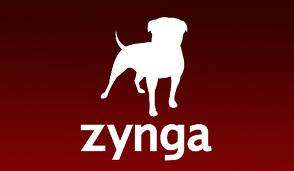Zynga Withdraws from Nevada Online Poker License Consideration
 The on-again, off-again tale of Zynga’s flirtations with real-money online gaming took another turn in the “off” direction recently, when news broke that Zynga and its key employees had withdrawn their application for a preliminary finding of suitability, the first step to receiving Nevada Gaming Commission (NGC) approval.
The on-again, off-again tale of Zynga’s flirtations with real-money online gaming took another turn in the “off” direction recently, when news broke that Zynga and its key employees had withdrawn their application for a preliminary finding of suitability, the first step to receiving Nevada Gaming Commission (NGC) approval.
Zynga’s latest step away from the fledgling “official” US online poker market came with no fanfare whatsoever, being discovered only when the post-hearing minutes from the NGC’s most recent two-day session on current licensing and regulatory matters was posted a few days ago on the NGC site. Each such hearing generates dozens of pages of licensing minutae, ranging from who’s getting the latest casino liquor licenses to what chip-capper has gotten himself added to the state’s “undesirables” list.
Zynga didn’t have to worry about being declared undesirable (unless there’s some major corporate skeletons out there that have yet to emerge in public), though the San Francisco-based firm’s reluctance to transition into a true online gambling firm rings clear.
The actual withdrawal of suitability applications for the company regarded six Zynga executives and owners who had already applied for “key employee” status with Nevada regulators, a required step in the state’s casino-business approval process. Former Zynga CEO and Chairman of the Board Mark Pincus was one of the six, as were CFO Mark Vranesh, Executive VP / CTO Cadir Lee, Executive VP of Games / Chief Mobile Officer David Ko, Chief Revenue Officer Barry Cottle, and corporate director Stanley Meresman.
Pincus’s CEO successor, Don Mattrick, appears to have a cooler attitude towards US online gaming. One of the likeliest scenarios offered to date is that the cash-strapped Zynga, which lost $16 million last quarter and saw its year-to-year revenue for the most recent quarter down 31% to $231 million, just doesn’t want to incur the trailblazing investment costs in a Nevada market still in its infancy, given the state’s smallish population (circa 3 million) and ample gambling opportunities elsewhere.
Zynga’s stock has taken an even larger beating in percentage terms, selling of late around $3.80 a share after trading well north of $10 after the firm’s well publicized 2011 IPO, and dipping to barely $3 a share this week after the Nevada pullout. Several analysts have issued warnings on the company, citing a healthy chunk of off-book debt, few ready revenue streams and, of course, the see-sawing online gambling plans.
As CNBC noted in its report on Zynga’s latest quarterly earnings call, in which the company’s stepback from Nevada was acknowledged, both current CEO Mattrick and former CEO Pincus (who’s still with the company) harped on the company needing to maintain a tight “focus” — that is, to say, on free-to-play social gaming.
That’s great in a healthy economy, when advertising and spending flow freely, but it can be tough in tighter times. The stated plans also run contrary to Zynga having retired about a dozen popular social-gaming titles in the last year, part of the company’s pare-down of 20% of its workforce to its current 2,300 employees.
Zynga also continues to maintain the world’s largest free-to-play, social poker games, in Zynga Poker and its Facebook version, Zynga Plus Poker, both of which aren’t true poker but add various gaming and virtual “achievement” bells and whistles to a traditional poker offering. Zynga Poker was actually the company’s very first game, and the total users of the company’s play-chip games dwarf by a magnitude those who play on any other free-play poker site, including PokerStars.net.
The problem, however, remains the same: How does Zynga convert those games’ audiences to real-money gambling? That conversion can be expensive and uncertain, and for a company in the midst of corporate losses and restructuring, it’s the promise of a brave new world via a sailing ship with a leaky bottom. The timing just isn’t right.
And so Zynga will pass… for now. There’s no reason the company can’t renew its applications in Nevada (and possibly, in other states as well) in 2014 or beyond. The market that Zynga is hoping for anyway depends on player liquidity and interstate compacts, and despite the noise being made by Nevada Gov. Brian Sandoval and a handful of poker-industry promoters, that’s not close to happening any time soon. With all those headwinds still blowing, that brave new world remains a sizable ocean away… and that’s why Zynga’s going to stay in familiar waters for the time being.



















COMMENTS